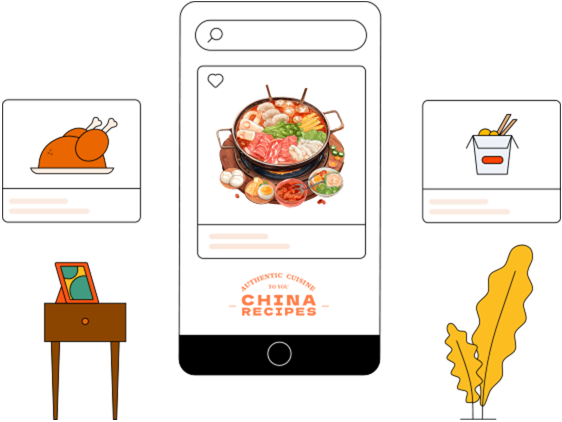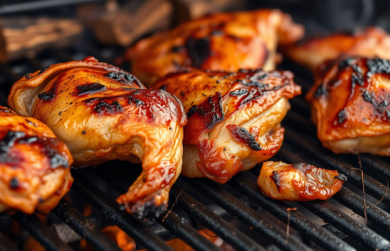How Long Does It Take to Boil Chicken Thighs? Cooking Secrets

To my surprise, many friends have asked me, "How long does it take to cook chicken thighs?" Today, I'll discuss this in detail with you!
How Long Does It Take to Boil Chicken Thighs?
It takes between 15 and 30 minutes.
If they are boneless chicken thighs, the cooking time will be shorter. Put the chicken thighs into cold water. After the water boils, cook for about 15 - 20 minutes and they will be cooked. Boneless chicken thighs are thinner, making it easier for heat to penetrate.
If they are bone-in chicken thighs, after putting them into cold water and waiting for the water to boil, cook for about 20 - 25 minutes. If the chicken thighs are particularly large, extend the time to 30 minutes. Chicken thighs cooked for this length of time are tender, juicy, and retain a bit of the aroma of the bone marrow.
Tips for Cooking Chicken Thighs:
Skim the foam off the water surface after it boils when cooking chicken thighs. This will result in a better-tasting chicken thigh.
Don't rush to take out the cooked chicken thighs. Let them sit covered for 5 - 10 minutes, which will make the meat more firm and chewy.
How Long to Boil Bone - In Chicken Thighs to Shred?
Figuring out how long bone-in chicken thighs need to be cooked before they can be shredded has been something I've pondered. After my continuous experimentation, I've found it's actually quite simple.
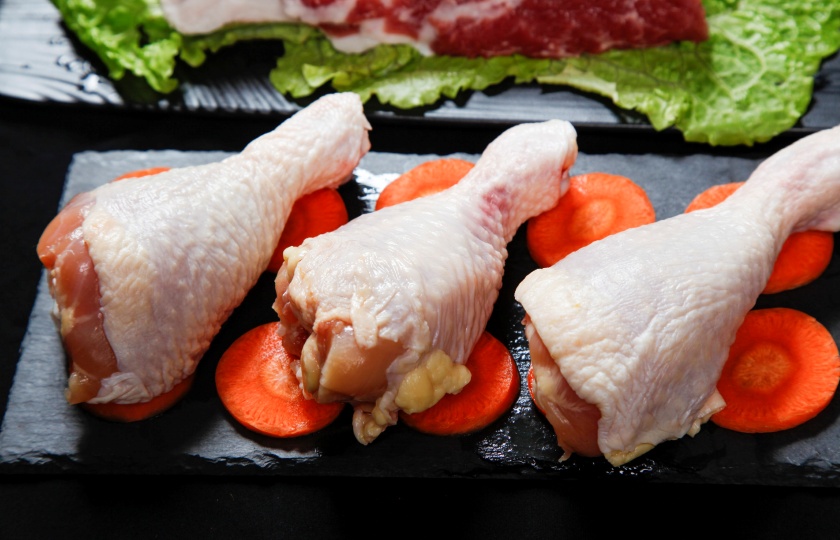
Under normal circumstances, put bone-in chicken thighs into cold water, bring to a boil over high heat, skim off the foam, then turn to medium-low heat and cook for 20 - 25 minutes. At this point, the chicken thighs are tender and juicy but not quite ready to be easily shredded. I recommend setting the time according to the actual cooking method as follows:
Regular pot: 40 - 50 minutes. Cook until soft, suitable for hand-shredding.
Pressure cooker / Rice cooker: 15 - 30 minutes. Fast and time-saving.
Slow cooker: 4 - 6 hours. Super tender texture, breaking apart at the touch.
After cooking the chicken thighs, don't take them out immediately. Put the chicken thighs in ice water for 5 - 10 minutes. This will make the chicken more firm and improve the taste.
How to Boil Chicken Thighs?
There are many ways to cook chicken thighs. You can fry them in a pan, air-fry them, roast them, boil them, or even barbecue them.
Below is my favorite and simplest method of cooking chicken thighs. Feel free to refer to it:
Wash the chicken thighs and remove any excess skin and fat.
Put the chicken into a large pot and add spices, herbs, and chopped onions.
Add water to the pot until the water just covers the chicken. Usually, it's about 1 - 2 inches.
Cover the pot and cook the chicken thighs over medium-high heat for 20 to 25 minutes. Set a timer to prevent overcooking the chicken.
How Can I Tell If Boiled Chicken Is Done?
There are several simple ways to tell if chicken thighs are cooked:
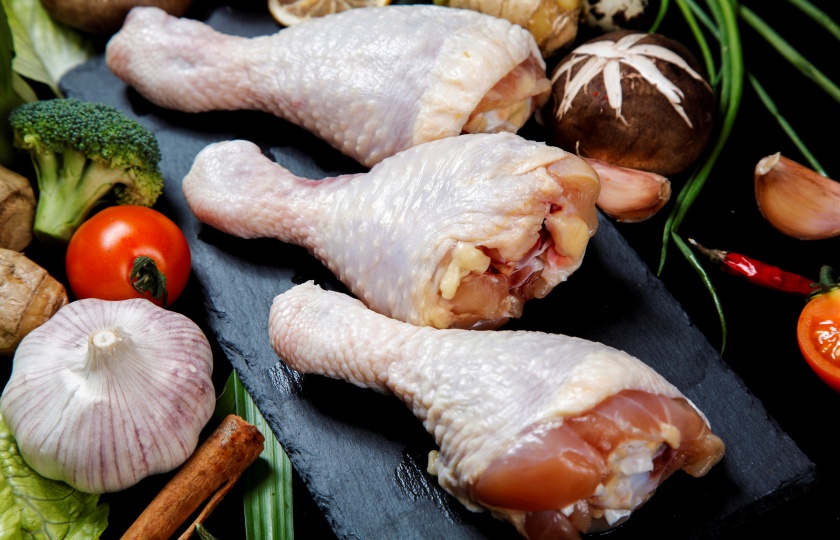
Observe the Color Change of the Chicken Thighs
After being cooked, the color of chicken thighs changes from pink to white, and the juice becomes clear and transparent. When you see the chicken thighs gradually changing from tender red to snow-white, it's almost time to take them out! This change in meat color is an obvious sign that the chicken is cooked.
Check the Texture of the Chicken Thighs
When the chicken thighs are almost cooked, gently poke them with a chopstick. If it can easily penetrate the chicken, it means the chicken thighs are already soft. This simple physical test is very convenient.
Measure the Internal Temperature of the Chicken
This is the simplest and most convenient detection method. Insert a food thermometer into the thickest part of the chicken thigh. When the internal temperature reaches 74°C, it means the chicken is fully cooked. This is scientifically proven.
How Do You Know If Boiled Chicken Is Overcooked?
Overcooked chicken becomes dry and tough, making it difficult to chew. To avoid this, you can judge from the following aspects:
Observe the Appearance
Due to excessive water loss, the surface of overcooked chicken will become wrinkled and cracked. The color will also lose its luster, looking overly white or yellowish.
Test the Texture of the Chicken
If the chicken falls apart into dry strands with just a poke of a fork, it means the water has been completely boiled out. Gently press the chicken with your hand. If no juice overflows and it feels a bit dry and stringy, the texture will be powdery, dry, and tough when eaten.
Examine the Internal Fibrous State
The internal fibers of overcooked chicken become rough and loose, and you can even see separated chicken strands. It tastes dry and stringy, breaking apart easily when chewed, giving a feeling of "chewing cotton wool".
Taste the Texture
Overcooked chicken tastes dry, powdery, like chewing cotton, with complete water loss. Especially for chicken breast, if it's overcooked, it's almost impossible to bite and may get stuck in your throat.
Why Is My Chicken Tough When I Boil It?
The following reasons may be the cause:
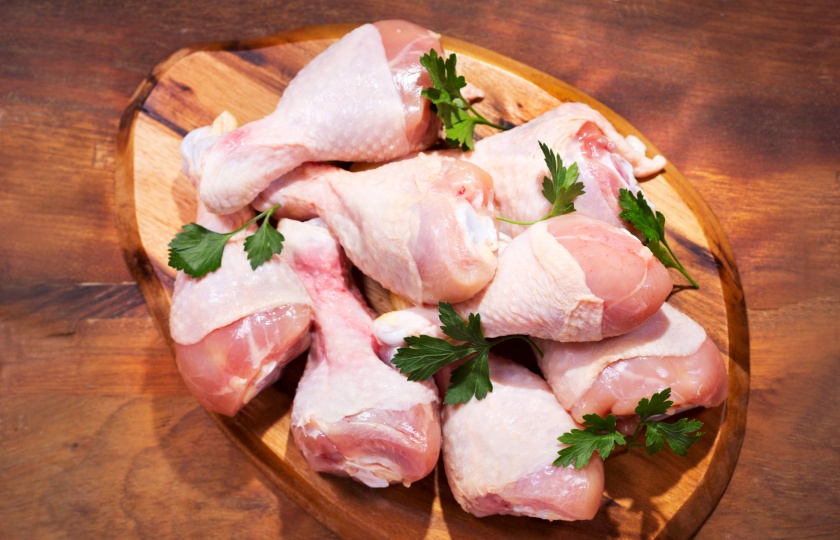
Excessive Cooking Time
If the cooking time for chicken is too long, the protein will overcoagulate, causing the meat to become firm, hard, and dry in texture.
Excessive Heat
Using too high a heat when cooking chicken will cause the protein in the chicken to coagulate rapidly, resulting in tough meat.
Adding Salt Prematurely
Adding salt prematurely when cooking chicken will cause water loss in the chicken and the protein to coagulate in advance, making the meat tough.
Chicken Part and Quality
Chicken breast is more likely to become tough than chicken thighs because it has a lower fat and water content. Also, older chickens or chickens that have been frozen for too long will be tougher.
Improper Blanching Method
Chicken should be blanched in cold water. If it's put into hot water, the protein on the surface of the chicken will coagulate quickly, affecting the taste.





